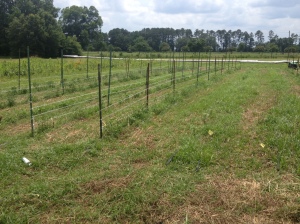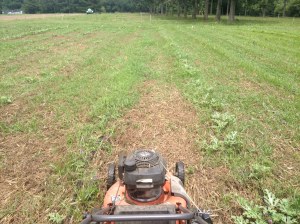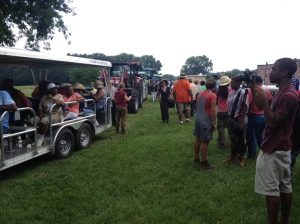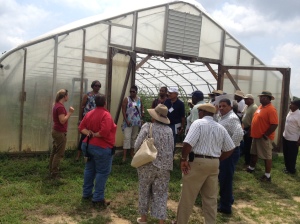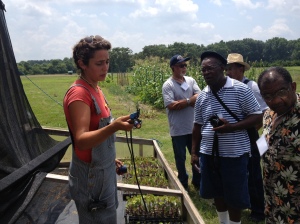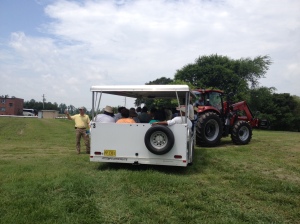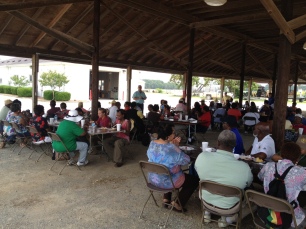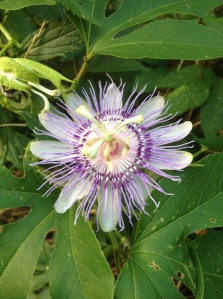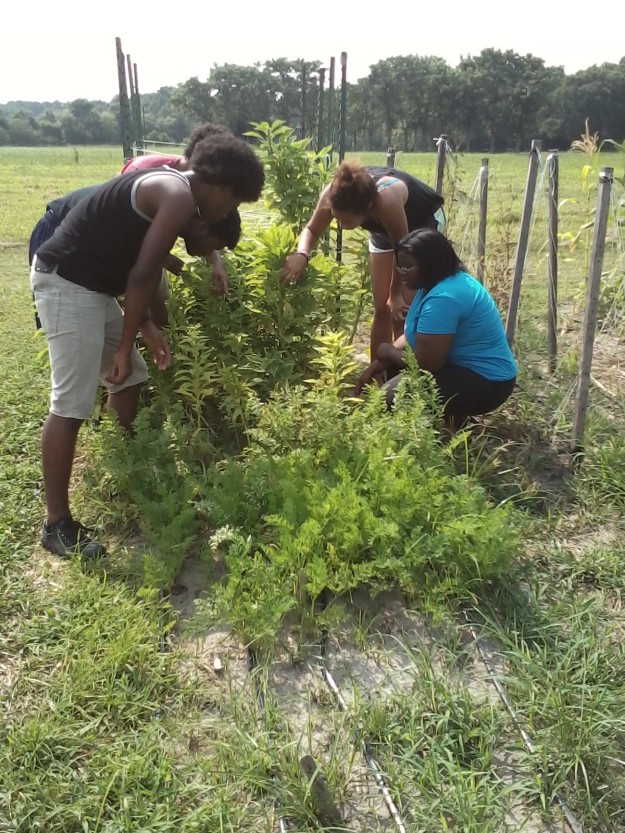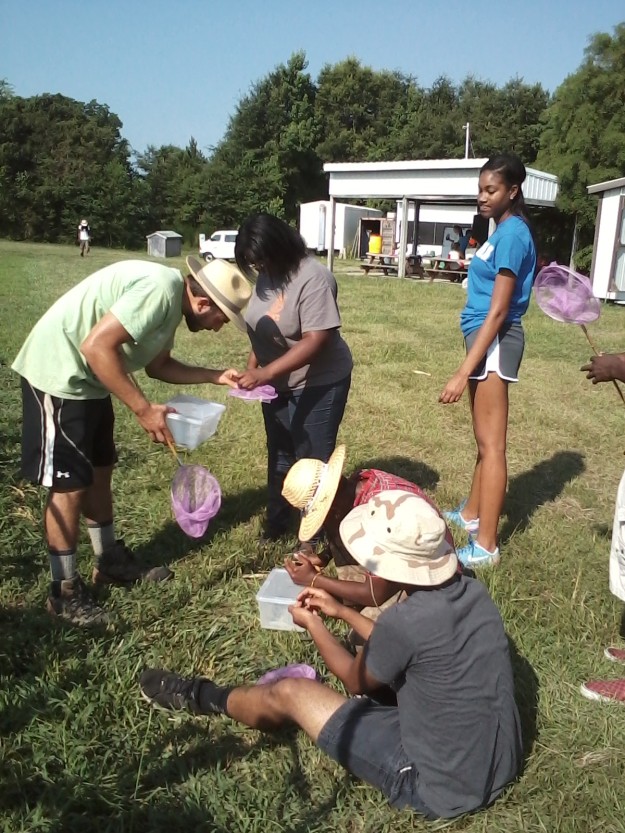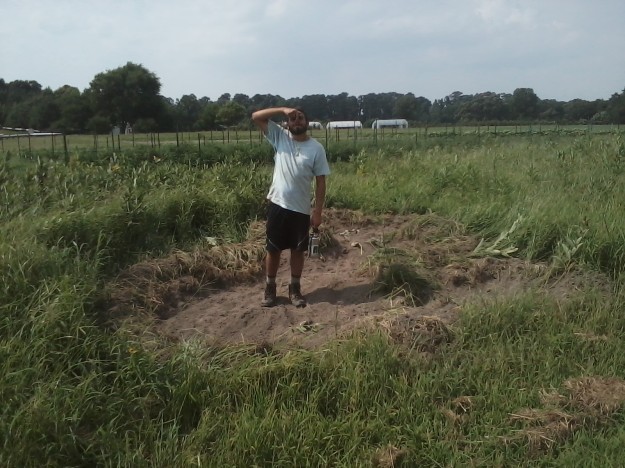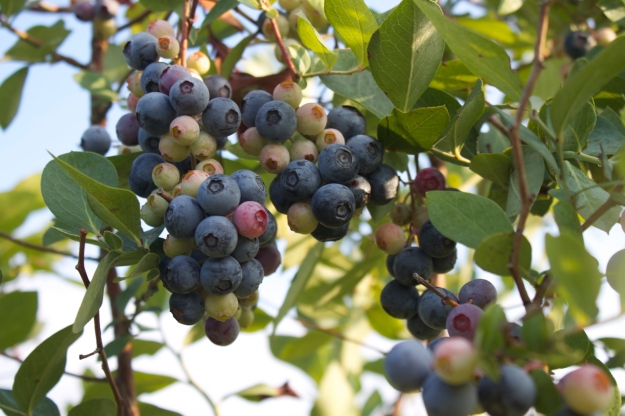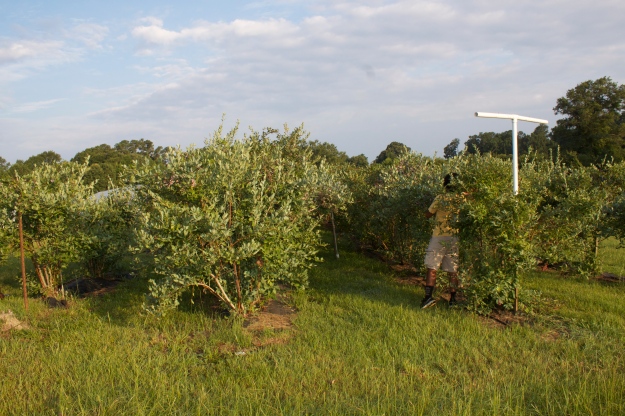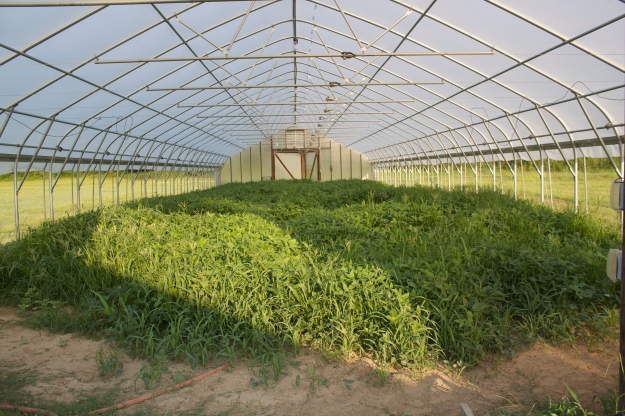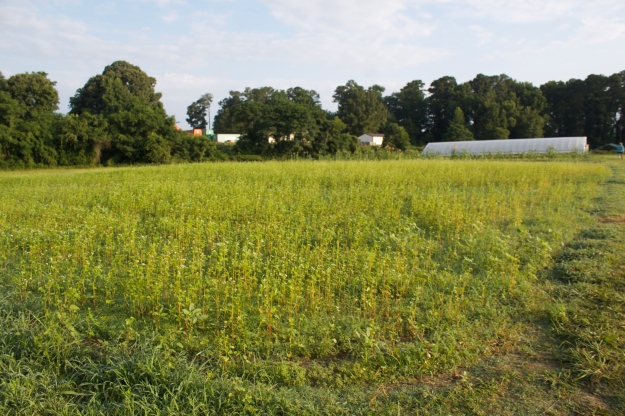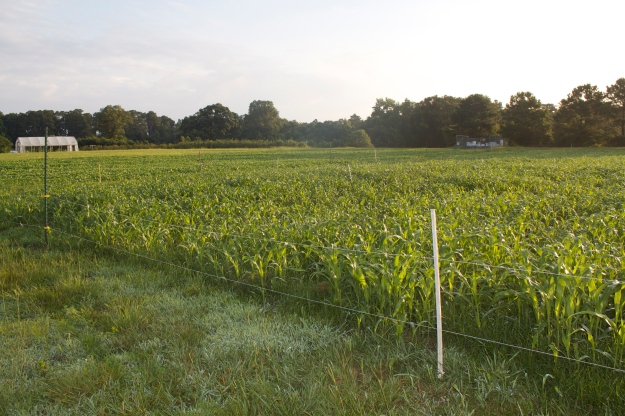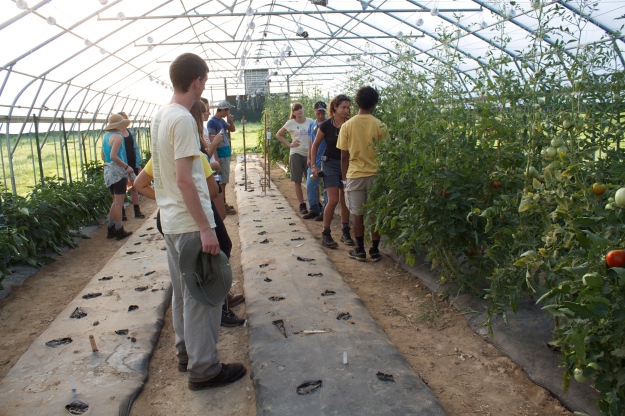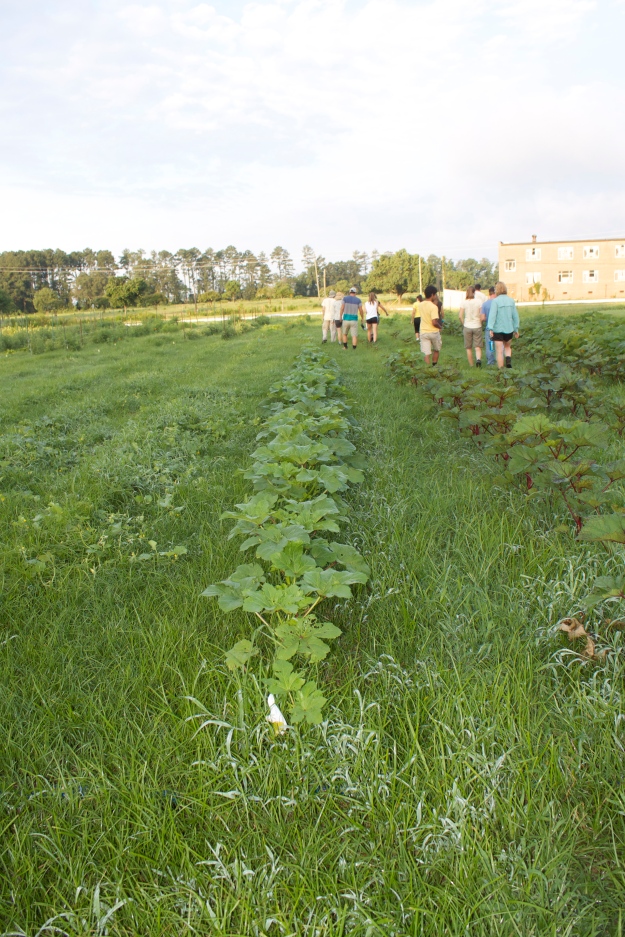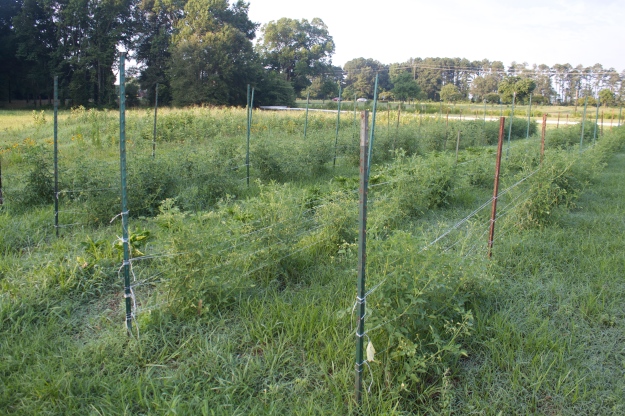The primary purpose of the Small Farm Unit here at CEFS is to provide a demonstration of organic practices to small farmers in North Carolina. With this being our goal, rather than production for market, we are able to risk using untested growing methods in order to find out if they can benefit farmers in our area.
One of the relatively untested methods that we recently implemented is organic no-till agriculture. Conventional no-till agriculture utilizes herbicides to manage weeds and knock down cover crops. Since organic herbicides are very expensive and often less effective than their conventional counterpart, we decided to omit them from our demonstration. So far we have found the no-till field to be considerably more labor intensive than our tilled organic fields, as it requires us to mow and weed whack between the plants about once a week.
As previously mentioned our main purpose is to demonstrate the farm to people in our area. This week we presented the farm to a group of over 100 minority landowners brought together by the USDA to discuss ways to maximize the value of their property. Many of the men and women on the tour were already farming their land and had been for years, so they contributed valuable information during the tour, but also gained exposure to some of our less common practices.
The tour was broken up into three parts that we felt encapsulated the most important aspects of the farm:
1. Our high tunnel demonstration, which allows farmers to extend their growing season and have a competitive edge in local markets.
2. Our greenhouse, which is essential for propagating transplants in the early and late months.
3. Our production fields, which are an excellent example of a 6-year crop rotation with animal integration.
After the tour, we headed over to the equipment shed outside of the service building, which had been converted into a dining hall for a delicious catered lunch. Our superintendent Andy Meier gave a brief history of the station and reminded the visitors that their tax dollars pay for the work that we do and therefore we work for them. This message is fundamental, because if the people of North Carolina are not benefiting from our research, then all of the work that we do is in vain.
I will leave you with an image of the Passion Flower, a North Carolina native that I found growing in the woods that surround our farm.

